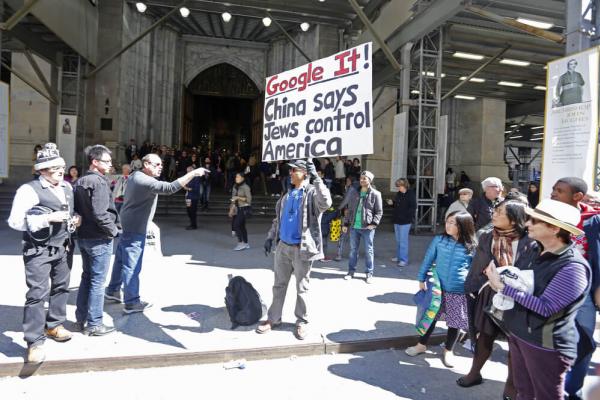Oct 20, 2016
A report released on Oct. 19 by the Anti-Defamation League does not directly indict Trump for this upswing in anti-Semitism. But it explicitly connects some of his supporters to the hate speech.
“The spike in hate we’ve seen online this election season is extremely troubling and unlike anything we have seen in modern politics,” said ADL CEO Jonathan Greenblatt.
Read the Full Article

Already a subscriber? Login
